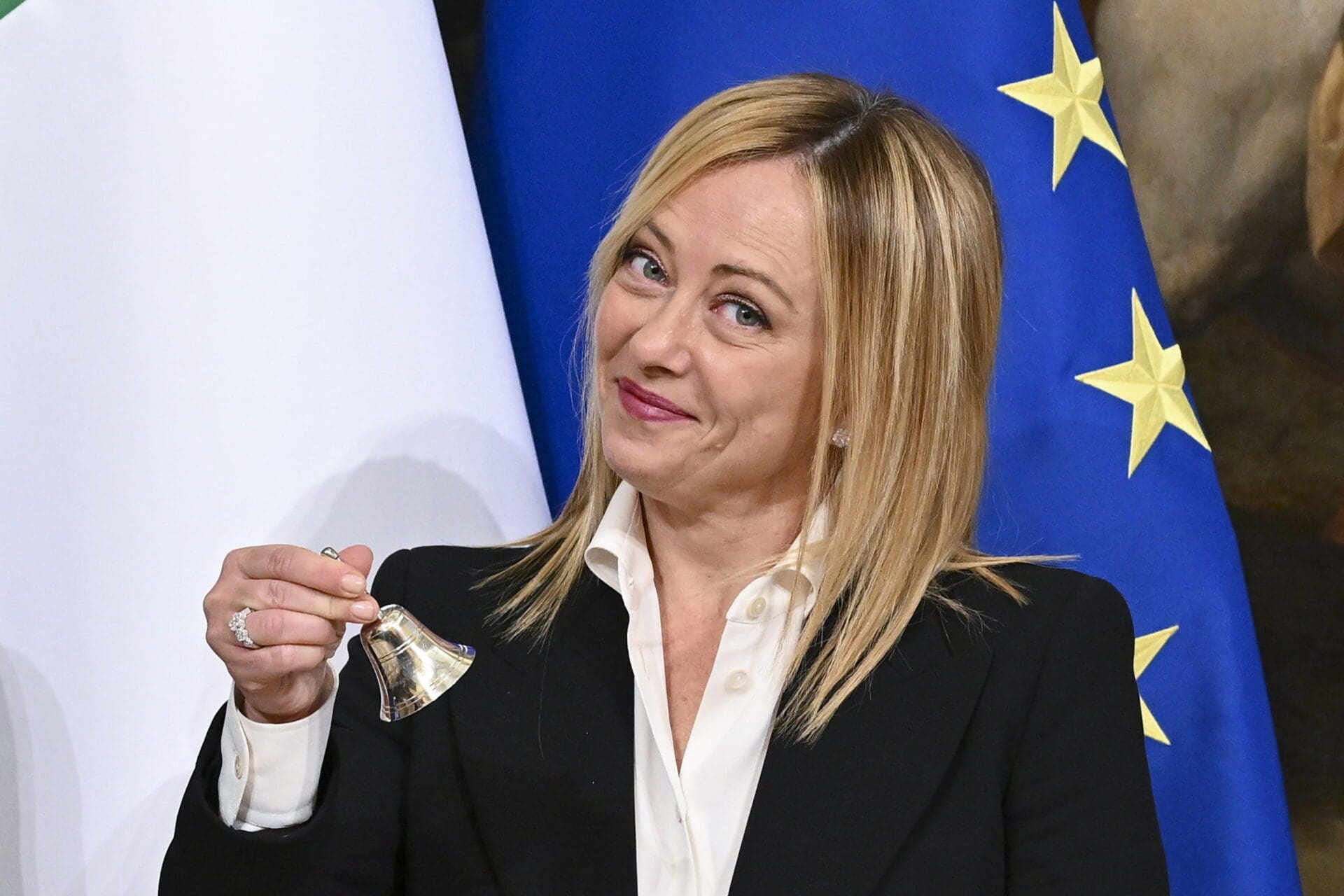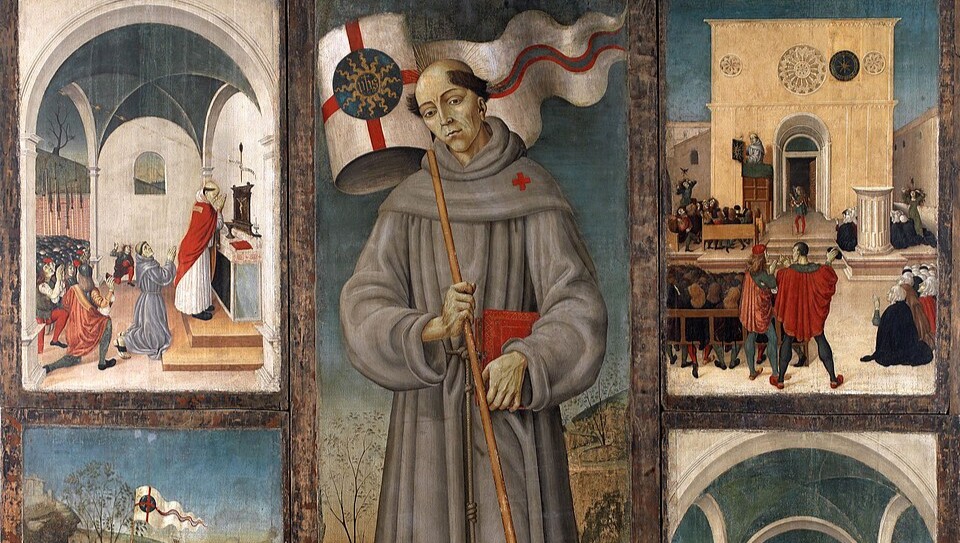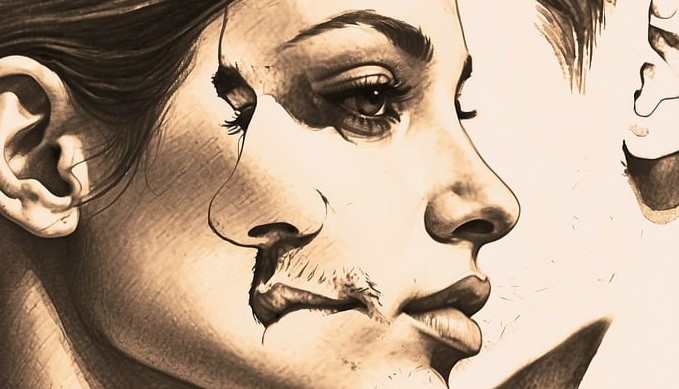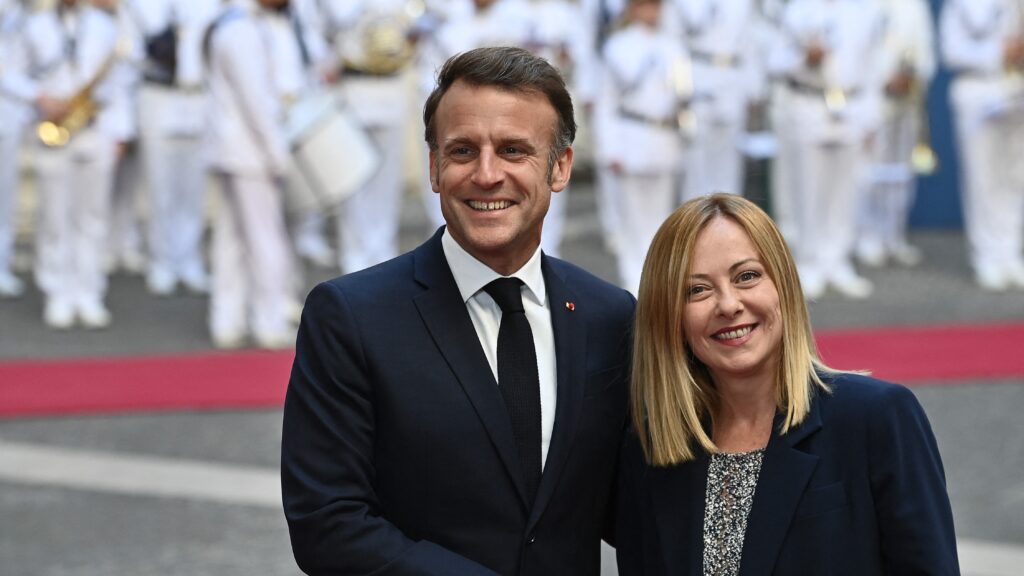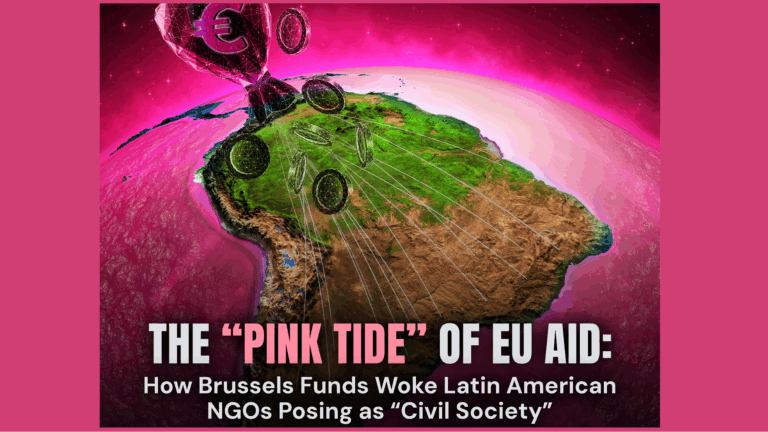On 21 October, Giorgia Meloni was asked by Italian President Sergio Mattarella to form a coalition government after her Fratelli d’Italia (FdI) party won the largest number of votes in the 25 September elections. After the swearing-in ceremony on Saturday, it is now official: Giorgia Meloni is Italy’s first female prime minister. But who is Giorgia Meloni, who is expected to bring a conservative renaissance to Europe?
In Hungarian conservative weekly Mandiner, Tibor Pósa penned a profile of the leader of Italy’s conservative right, Giorgia Meloni. The article gives us insights into the character of the newly appointed prime minister and the decisions we may see her make in the coming years.
Born in Rome
Ms Meloni is not afraid to stand up vehemently for what she believes to be right: she’s adamant and tenacious in defending her views. In Italy (too), politics is mostly a man’s game. In her more than fifteen years as a top party leader, there were numerous occasions when a short, blonde woman with big green eyes could only make herself noticed among the many elegant gentlemen in suits if she raised her voice. Her fiery Roman temperament has paid off, and today she no longer needs to outshout everyone to get their attention. Over the years, Giorgia Meloni has grown into a mature politician who knows the ins and outs of the business and has seen betrayal and unexpected alliances alike.
Starting at the Bottom
But who is Meloni, a single mother of one who has climbed the political ladder so successfully as to become Italy’s first female prime minister? Born in 1977, Meloni was not born into a wealthy family. Her father left when she was young, to work in the Canary Islands, but never returned. Her mother brought up Giorgia in Rome’s Garbatella district. As a teenager, she had to work to contribute to the family’s livelihood. She babysat and later became a bartender at the notorious nightclub Piper. Of that time, she previously said: ‘I didn’t learn about life by working in parliament, I learned what I know from behind the bar counter.’
In her first interview, she asked the journalist to ‘stop portraying me as a poor orphaned little match girl, abandoned by her communist father who after life’s trials and tribulations, ended up on the right.’ She quite obviously dislikes clichés and stereotypes.
Her career started in 1992. That year is engraved in the memory of Italians. It was the beginning of the direct confrontation between the Sicilian mafia and the state, with the brutal murders of the investigating magistrates Falcone and Borsellino. The repercussions of the police proceedings that were launched shook the entire Italian political class, with the ‘clean hands’ operation bringing down a mass of previously lauded politicians. ‘I couldn’t be an outside observer’, said Meloni, who joined the youth wing of the Italian Social Movement, the MSI. The party was founded after the Second World War as the successor to Benito Mussolini’s fascist movement. Hence the Left’s frequent accusation that anything Meloni touches can only be fascist.
In 1995, the MSI changed its name and approach, calling itself the National Alliance, and moved away from Mussolini’s ideas. In the same year, Silvio Berlusconi brought the party into the ruling coalition. Giorgia Meloni had already attracted attention in the youth organisation: with a burning ambition to work, she was called a maniac behind her back. She was a fierce debater, speaking her mind to everyone, even if it was not welcome. Then she became the leader of the right-wing student group Student Action.
In 2006, at the age of twenty-nine, she was elected a member of parliament. Two years later, in Berlusconi’s fourth government, she was given the portfolio of youth affairs, making her the youngest minister ever appointed in Italy.
Not a Feminist
After the fall of the Berlusconi government in 2011, she had three options. She could either stay under the wing of her mentor Berlusconi, go back to strengthening the National Alliance, or choose a third path, an escape route: she founded her own party, the Brothers of Italy, with Ignazio La Russa. This adventure required a degree of determination that was unique to Meloni. it first did not appear to be a successful venture, to put it mildly: the party got just over two per cent in the 2013 elections, but its president knew that with plenty of work it would get better, that it will take time for the message of the coalition to reach the voters. But what is that message? ‘I am Giorgia, I am a woman, I am a mother, I am Italian, I am Christian’: the words that sum up her political programme, said in a famous speech, which have even been written into a pop song and which has been viewed by 12 million people on YouTube.
Meloni is proud of her Italian heritage and of being a woman. She believes that family is more important than anything else and life should be lived based on the Christian faith. ‘At last, a woman who is not a feminist’, her followers often say. She embraces her femininity unashamedly and highlights her love for her family. Meloni is raising her teenage daughter, Ginevra with the father of the child to whom she is not married. While Sunday mass is a must for her, Meloni is not the kind of Catholic who, when slapped, turns the other cheek, but rather fights back.
In the 2016 municipal elections, her party suffered another defeat, with Meloni, who was running for mayor of Rome, finishing third. But then things slowly fell into place and the party’s support started to increase.
There were two reasons for this. Her right-wing rival Matteo Salvini accepted an offer from the radical Five Stars Movement in 2019 and joined the governing coalition. He then also accepted a position in the cabinet led by Mario Draghi. Before these manoeuvres, polls showed Salvini’s Northern League having a towering lead over other parties with 38 per cent of the votes. Now, in the elections, Salvini’s party earned a mere 8 per cent, while Meloni and FdI received 26 per cent.
This huge increase in support was the result of Meloni’s dogged determination not to compromise with her opponents, even when the possibility looked very promising. It seems that in the long run, being uncompromising in terms of policy pays off. Although there is some tension between the three right-wing parties set to govern Italy in a coalition, it is not likely to prevent them from working together for the sake of Italy.
The Euro Stays
Giorgia Meloni chairs the European Conservatives and Reformists, ECR group in the European Parliament, which means she has a voice in Europe. She with works together with the moderate Eurosceptic Polish governing party Law and Justice and the Spanish Vox. Salvini’s League is part of a different parliamentary family, allied with Marine Le Pen’s party in the Identity and Democracy grouping. Despite the critique and concerns formulated by some EU leaders ahead of the Italian elections, including the president of the European Commission Ursula von der Leyen, it seems that Brussels has come to terms with Meloni’s victory. ‘A hundred times better than Salvini, at least we can make agreements with her,’ unnamed Brussels sources have said.
In fact, in the run-up to the elections Giorgia Meloni had deliberately backed away from her anti-Brussels rhetoric and spoke in a more constructive tone about EU affairs. Meloni has also taken off her political agenda her earlier demand that if the right wing comes to power in Rome, it should immediately start to restore the lira as a currency. Today she no longer wants to ‘jeopardise the country’s finances,’ which means the Euro is to stay. ‘The protection of national interests comes first,’ the Italian leader explained earlier. ‘Sometimes we say no to nonsense, but that does not mean we want to destroy Europe,’ she concluded.
The other difference between Meloni and Salvini is in their attitude to trans-Atlantic issues.
In Washington, the new prime minister is seen as a European leader who stands up for the US presence in Europe, while League president Salvini would have been less welcome as the leader of Italy, as Washington claims Salvini has ‘received too much money from Putin’. As opposed to that, Meloni regularly attends US Republican events overseas. There is another controversy that is important in Italy: the relationship with the Vatican. Meloni is keen on maintaining good relations with the Holy See and Pope Francis personally. By contrast, Salvini has often criticised the Vatican.
Economic Agenda
In August, the three right-wing parties presented their common political and economic programme. The first point stated that Italy is a full member of the European Union, of NATO and the Western world, and that the Italian centre-right pledges to keep those memberships. However, three parties also declared that they consider the defence of national interests to be of paramount importance.
The parties had also agreed that they would support Ukraine and use all diplomatic means available to implement their peace policy. However, the document did not mention arms transfers to Kyiv. According to the programme, the coalition parties will demand a review of the European Stability Pact and the EU’s economic policy, particularly as regards energy. According to the agreement of the three parties, steps will also be taken to switch to a presidential system. In its economic programme, the centre-right has promised tax cuts for families and businesses, with a flat rate tax to below a certain income. The parties also expressed their determination to increase the birth rate in Italy through family tax credits and housing subsidies for newlyweds. The programme also said the unconditional basic income would be abolished immediately.
The party leaders confirmed in addition that border control would be stepped up and human trafficking would be tackled effectively. The previous anti-migrant law, in force under Salvini’s interior ministership, will be reintroduced, but for those who are already in Italy, measures to promote labour and social integration will be adopted. To improve public security, strong government action against drug trafficking and Islamic radicalism will be needed, according to the coalition’s political programme.
On Friday, Meloni personally read out the list of her new cabinet, after having been asked by Italian President Sergio Mattarella to form a government. The FdI’s two allies, the League and the Forza Italy (FI) parties will provide the two deputy prime ministers. One of them is Antonio Tajani, who will also be minister for foreign affairs; and the other is Matteo Salvini, leader of the League, who will head the ministry of infrastructure, including the overseeing of seaports. The FdI’s coalition partners will have five seats each in the 24-member cabinet.
Now Giorgia Meloni and her coalition partners have serious challenges ahead of them. The new PM must stabilise Italy with appropriate economic and social measures amid an unfolding crisis. In addition, at the European level, she will be faced with the expectation—especially from Budapest and Warsaw—of a renewal of the European conservative right.

